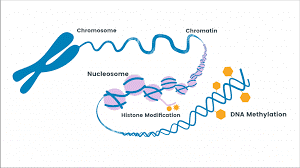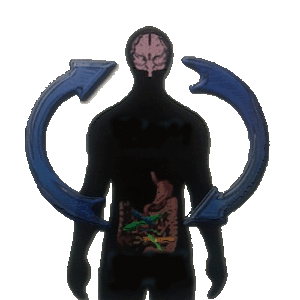 Prior to jumping in here with ways to improve methylation, I’d highly recommend you read the following blogs I have written on this topic.
Prior to jumping in here with ways to improve methylation, I’d highly recommend you read the following blogs I have written on this topic.
Should I be Freaking Out About my Genes?
Are Your Methylation Processes Bang On, OR Are They Off the Rails?
If you’re wanting to support better methylation or you’re freaking out because you’ve just gotten tested and discovered that you have an MTHFR SNP – this blog is for you.
 Firstly – don’t panic! For one, just having the SNP doesn’t mean it’s all gloom or doom, and if you do have the SNP people experience this in different ways. Some folks hardly experience symptoms of an efficient methylation cycle while others experience a great number of symptoms. It’s my experience that your overall health picture and stress levels have a lot to do with how these SNPs effect you. There are also many things you can do to protect your health.
Firstly – don’t panic! For one, just having the SNP doesn’t mean it’s all gloom or doom, and if you do have the SNP people experience this in different ways. Some folks hardly experience symptoms of an efficient methylation cycle while others experience a great number of symptoms. It’s my experience that your overall health picture and stress levels have a lot to do with how these SNPs effect you. There are also many things you can do to protect your health.
Essentially, if you have the MTHFR SNP, you can’t get your folate into its methylated form because your methylation pathway isn’t working efficiently and then your body struggles to recycle homocysteine back into methionine. What? If you’ve read the previous blogs then you know that methylation processes are absolutely central to our physical, emotional and mental wellbeing. It’s a biochemical process involved in almost all of your body’s functions.
Two of the main types of MTHFR variations are called C677T and A129BC. The C677T variant tends to be the one that is linked to problems. Those of us with the MTHFR variation have a defective MTHFR enzyme. We produce 30 to 70% less methyl-folate than someone without the mutation.
That can be bad news. With lower methylation our entire methylation cycle is disrupted, affecting antioxidant production, brain chemistry, cell repair, detoxification, energy production, genetic expression, immune response, inflammation, and many other crucial processes.
But don’t worry: there are lots of ways to increase your methylation and keep yourself running at your best.
Having the MTHFR variation is actually a GIFT and an opportunity to eliminate tipping point factors that lead to disease. Your genes are one of many factors influencing your health and performance. You determine your future through the lifestyle habits that you commit to each day.
 Here’s a quick list of things that tax our methylation processes:
Here’s a quick list of things that tax our methylation processes:
- Oxidative stress, (Read our blog here)
- Alcohol (yes, as in wine, beer, and liquor)
- Yeast die-off, from having and treating yeast (also known as candida or thrush) whether with herbs or medications
- Elevated nitric oxide, which is common with chronic fatigue, inflammation, autoimmunity, and Lyme disease; nitrous oxide gas treatment at the dentist will also increase nitric oxide.
- Autoimmune antibodies
- Inflammation in general
- Food sensitivities and leaky gut,
- Toxins in the environment and in our personal care products
- Heavy metals (like mercury, lead, and aluminium)
Some prescription and over-the-counter medications can further deplete already low folate levels or interfere with methylation. Speak with your doctor if you take any of the following drugs and you suspect you have an issue related to methylation:
- Antibiotics, specifically sulfa-containing drugs like Sulfamethoxazole and trimethoprim (SEPTRA or Bactrim), sulfasalazine or triamterene (found in Dyazide)
- Birth control pills
- Hormone replacement therapy drugs
- Anticonvulsants (like phenytoin and carbamazepine)
- Antacids/acid blockers
- NSAID pain relievers
- Antidepressants
- Chemotherapy treatments
- Cholesterol-lowering drugs (like niacin, acid sequestrants, cholestyramine, colestipol and colesevelam)
- Nitrous oxide (typically during dental work)
- Methotrexate for rheumatoid arthritis
- Metformin for diabetes and PCOS
In his book Dirty Genes Dr. Ben Lynch talks about two types of genes, those that are born dirty and those that become dirty. Here are some lifestyle factors that can make our genes dirty. I explain his concept further in Should I be Freaking Out About my Genes?
How to Improve/Support Methylation
How do you increase methylation? Whether or not you have the MTHFR mutation, the lifestyle habits below can help support normal methylation:
Eat Clean and Intuitively
It’s important to emphasize whole, unprocessed foods in your diet, especially those that provide natural folate and B vitamins (including B6 and B12), which are methyl donors and critical components of normal methylation. I’ve outlined specific methyl donor foods to focus on and why in my blog Methylation, Gut Health and Methyl Donor Foods.
I also outline certain foods you may wish to consider avoiding and why. Some of these are seemingly very healthy foods but once you understand the rationale you might just realise you innately minimised these foods anyway. Avoiding these foods may help to restore metabolic processes and help with MTHFR but remember that each of us have our own set of nutritional needs so eat innately. What follows is general dietary advice, specifics are found in the blog Methylation, Gut Health and Methyl Donor Foods.
Ditch The Three Whites – Methyl groups can also be depleted through consuming a diet comprised of the 3 “white deaths”—white sugar, white flour, and white salt, as well as processed oils and fats, industrial pollutants, pesticides, junk food, and soft drinks. These foods dirty your genes and load your liver.
Avoid
- Too many refined carbohydrates
- Gluten
- Processed/enriched grains
- Added sugar
- Too much protein
- Not enough protein
- Processed meats
- Preservatives
- Synthetic chemicals
- Conventional dairy
- Refined vegetable oils
- Trans fats
- Not enough healthy fat
- A shortage of nutrients that your genes need to work properly, such as B vitamins, vitamin C, copper, and zinc
 Be Consistent with Exercise
Be Consistent with Exercise
Getting enough exercise is important for fighting free radicals, keeping inflammation under control and promoting detoxification.
Avoid
- Sedentary lifestyle
- Overtraining
- Electrolyte deficiency
- Dehydration
Focus on Quality Sleep
Sleep is essential when wanting to support methylation. Deep, restorative sleep is your best friend here — it’s the best stress-reducer I know!Sleep lighten the burden on your MTHFR as well as on your Methylation Cycle.
Avoid
- Not enough deep, restorative sleep
- Going to bed late, getting up late
- Irregular sleep patterns
Minimise Environmental Toxins
Detoxification pathways are sluggish with poor methylation, therefore it’s important to avoid toxins where possible. Alcohol, cigarettes and other drugs all take a toll on your liver, which is responsible for cleaning your body of these substances.
Avoid
- “Dirty” food
- “Dirty” water
- “Dirty” air—including indoor air
- “Dirty” products: sprays, cleaners, cosmetics, paints, pesticides, herbicides
Wrangle Stress
High levels of stress can make MTHFR mutation symptoms even worse and hinder the overall methylation process.
- Physical stress: long-term illness, chronic infections, food intolerance/allergies, insufficient sleep
- Psychological stress: issues at work, at home, with your loved ones, with life
Further Tips To Improve Your Methylation Pathways
#1 Repair Your Gut
 If we want to move our body and our methylation processes back into balance, then we really can’t look any further then our gut health. Yes, methylation issues are all about gene variations but the deficiencies experienced with poor methylation can go a long way to being met – with the B vitamins that our microbiome manufactures. That is -when our microbiome is thriving and healthy.
If we want to move our body and our methylation processes back into balance, then we really can’t look any further then our gut health. Yes, methylation issues are all about gene variations but the deficiencies experienced with poor methylation can go a long way to being met – with the B vitamins that our microbiome manufactures. That is -when our microbiome is thriving and healthy.
When we invest in our gut health, we preserve the body’s intelligence to create these essential vitamins. When our gut is unhealthy and leaky – our liver has to work harder to try to create some of these B vitamins. Often the liver is so burdened from toxins and poor methylation processes (yes, it’s a round-robin cycle, unfortunately) that it doesn’t prioritize methylation and these processes become more inefficient.
In his book Dirty Genes Dr. Ben Lynch says, “Repairing the digestive system and optimizing the flora should be one of the first steps in correcting methylation deficiency”, and that includes treating candida because of the toxins it releases, inhibiting proper methylation.
* Start With Your Stomach Acids
Methyl groups are derived from organic compounds such as proteins when they are broken down in the stomach by the acid you produce. So, wait for it – drum roll please – if your stomach acid is depleted or its production is inhibited, then you will inevitably wind up with inadequate methylation.
I wish I’d known this sooner. Each pregnancy I’d suffer from reflux which is a sign of low stomach acid. At this time, I knew very little about methylation.
Good gut health begins with the start of the assembly line and that my friends – is the stomach and stomach acid. Most people are under the misconception that they have reflux and stomach issues because they have lots of stomach acid. This is not correct. Please see our gut health blogs on how to test your stomach acid levels.
#2 Ditch All Folic Acid
If you have MTHFR gene variations, then most experts in this arena agree that synthetic folic acid is not your friend. Folic acid is found everywhere—supplements, energy bars, protein shakes, foods, drinks. I encourage you to explore your menu items and cut folic acid out of your life.
Folic acid BLOCKS your body’s folate receptors and your ability to absorb B vitamins through your diet, in doing so it may PERPETUATE vitamin B deficiencies.
There are a host of conversations we can have here relating to spina bifida and common place advice that we need folic acid especially in pregnancy to prevent birth defects. That topic requires a seperate blog that includes discussion around the dramatic rise we have seen in central tube defects such as tongue ties in newborn babies and what’s at the root cause. There are feasible arguments that the prevalence of tongue tie has reached epidemic numbers since folic acid supplementation has been so heavily pushed the last number of decades AND there are arguments that heavy use of the most ubiquitous weed killer on the planet (Round-Up) is at cause.
This weed killer contains glyphosate amongst other ingredients, and harms health in a wide variety of ways. Monsanto argues that glyphosate is harmless to humans because it inhibits the Shikimate pathway in plants, therefore does not affect human health. Concerned scientists have disputed this and confirm that a very weighty, integral part of us does in fact utilise the Shikimate pathway – our gut bacteria!
Via this pathway, our gut bacteria produce essential amino acids. Essential because our bodies cannot make them. It’s a win-win scenario. We can’t make amino acids ourselves, but we can eat them through varied foods, and then we rely on own our bacteria to then activate them for us. Amino acids are the building blocks of proteins, and our body is a protein making machine – enzymes, hormones, neurotransmitters and even genes are proteins! Amino acids are crucial to our health and glyphosate is creating enormous deficiencies by disrupting their synthesis.
Deficiencies caused from glyphosate consumption include the following (but are not limited to just these): CoQ10, Dopamine, Epinephrine, Folate, GABA, Glycine, Melanin, Melatonin, Methionine (and selenomethionine), Phenylalanine, Serine, Serotonin, Sulphate transfer enzymes, Thyroid Hormones, Tryptophan, Tyrosine, Vitamin E and Vitamin K.
Folate (vitamin B 9) being central to DNA repair, myelination and central tube defects AND the whole discussion around – tongue tie.
#3 Get Your B’s From Real Food
B vitamins are methyl donors, especially folate, B6, B12, and riboflavin. Sources of B vitamins include meat, organ meats, fish, eggs, dark leafy greens, asparagus, almonds, sunflower seeds, and walnuts.
Folate – Vitamin B9 Folate is a needed inducer of several of the detoxification pathways. It is considered brain food. It breaks down homocysteine, a toxic and inflammatory agent produced by the liver if not properly converted. Folate has direct mood-elevating properties and is synergistic with serotonin production. Natural food sources of folate (vitamin B 9) include liver, dark green leafy vegetables, avocado, peas, and beans.
Vitamin B12 is crucial to the formation of healthy red blood cells, energy production, nervous system support, cognitive function, and homocysteine regulation. Vitamin B 12 is naturally present in beef (grass-fed only), lamb, liver, seafood (dark-meat fish) shellfish (crab, clams), eggs and dairy products. It may be harder for vegetarians and vegans to meet their daily needs for vitamin B12 from food sources without relying on supplements or fortified foods.
See my blog Methylation, Gut Health and Methyl Donor Foods for more specific methyl donor foods.
# 4 Weigh Up the Greens
If you do not have thyroid issues and your gut handles vegetables well, then eating dark leafy green veggies daily provides you with natural folate (a methyl donor), necessary for proper methylation. Many vegetables contain oxalates, saponins and other anti-nutrients to ward off bugs and rodents that can prove troublesome for many people who have gut issues. This is the rationale of most animal based diets which advice avoiding vegetables. If you have gut issues, taking a strict animal based dietary approach (which is free of not only vegetables but all inflammatory foods) for a period of time, can help lower inflammatory and give the gut time to heal.
Once your gut is healed than you may like to trial some of these greens including dark leafy greens again like spinach, kale, bok choy, and Swiss chard, they can be a great source of folate. I outline which greens may be a better choice for those with MTHFR SNPs in the blog Methylation, Gut Health and Methyl Donor Foods.
#5 Avoid Cow’s Milk initially
You may wish to avoid cow’s milk and dairy products initially. Food allergies and/or sensitivities to dairy produce antibodies that may clog your folate receptors. Goat’s and sheep’s milk products are usually fine—unless you have an autoimmune disease. Cow’s milk products may be okay after you’ve cleaned up your diet and healed your gut. Small intestinal overgrowths SIBO tens to lead to a deficiency in lactase enzymes which enable us to breakdown lactose.
#6 Support Methylation With Supplements
If you have SNP’s that impact your methylation then speak to your practitioner about which type of activated B vitamin is best for you and how often you would need to take it. I love Ben Lynch’s “Seeking Health” products and find this product works well Active B 12 with L-5-MTHF for most people, however, speak to your practitioner as some people need to start slowly.
Alternatively, you can get tested or start with reading his book Dirty Genes.
Here’s another great option if you prefer: Thorne-Research-B-Complex-12 60 Capsules
#7 Boost Your Glutathione
Have a read of our blogs on glutathione here and why it’s essential when supporting methylation:
How to Boost the Mother of All Antioxidants
Methylation, Gut Health and Methyl Donor Foods
I love this brand of glutathione Cellgevity link, I explain why in the glutathione blogs.I also try not to go a day without taking this product as it’s the best detox support product I know of.
Make time for gentle detox regimens throughout the week. That can include infrared sauna sessions, Epsom salt baths, and regular exercise or sweating. I also try not to go a day without taking Cellgevity – this product is the best detox support product I know of.
As you can see there are lots of proactive steps, we can take to support our methylation processes. So, go forth my friends and happy methylating to you all!
Resources:
Trimmer EE1.Methylenetetrahydrofolate reductase: biochemical characterization and medical significance.Curr Pharm Des. 2013;19(14):2574-93.
Sibani S1, Christensen B,Characterization of six novel mutations in the methylenetetrahydrofolate reductase (MTHFR) gene in patients with homocystinuria.Hum Mutat. 2000;15(3):280-7.
Dirty Genes. Dr Ben Lynch. Harper Collins 2018
Melissa Conerly, William M. Grady. Insights into the role of DNA methylation in disease through the use of mouse models
Disease Models & Mechanisms 2010 3: 290-297;
Keith D. Robertson DNA methylation and human disease Nature Reviews Genetics volume 6, pages597–610(2005) 01 August 2005
Arthur Urbano,1 Jim Smith,1 Robert J. Weeks,1,* and Aniruddha Chatterjee1,2,* Gene-Specific Targeting of DNA Methylation in the Mammalian Genome
Cancers (Basel). 2019 Oct; 11(10): 1515.
Chatterjee A., Rodger E.J., Eccles M.R. Epigenetic drivers of tumourigenesis and cancer metastasis. Semin. Cancer Biol. 2018;51:149–159. doi: 10.1016/j.semcancer.2017.08.004
Jin Z., Liu Y. DNA methylation in human diseases. Genes Dis. 2018;5:1–8. doi: 10.1016/j.gendis.2018.01.002.
Richardson B1DNA methylation and autoimmune disease. Clin Immunol. 2003 Oct;109(1):72-9.





